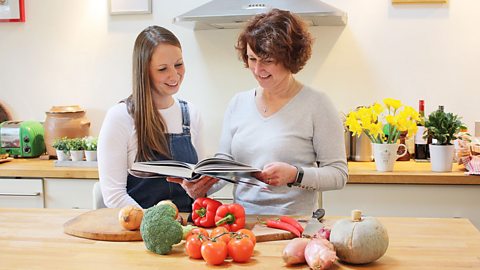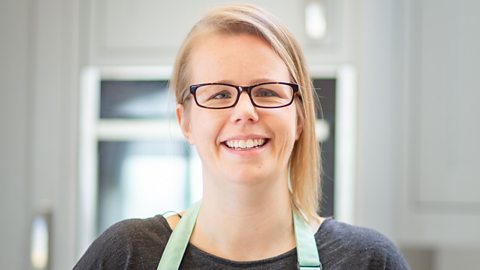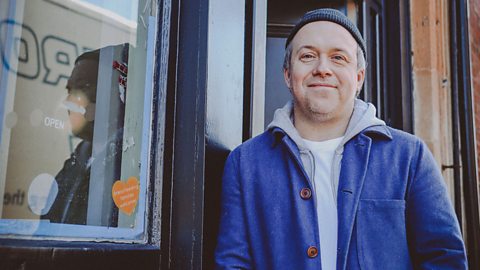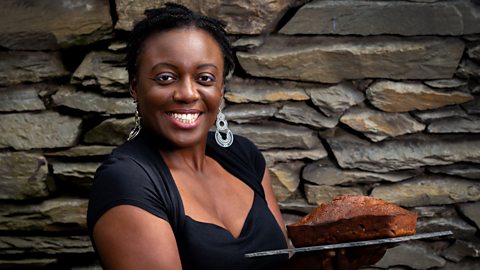How to turn your passion for food into a business

If youÔÇÖve been watching Gordon RamsayÔÇÖs Future Food Stars, youÔÇÖll have seen budding entrepreneurs battling it out to win a ┬ú150,000 investment from the celebrity chef to set up their dream food business. Seeing Victoria (with her plantain-based snacks business) crowned the winner may have inspired you to reconsider your own food business dreams. We sought out some other entrepreneurs whoÔÇÖve turned their food passions into careers without the help of a TV competitionÔÇŽ.
From nurse to frozen meal producer

Lizzie Langdon, Home to Home, North Somerset
Working as a nurse, Lizzie dreamed of setting up a family-friendly caf├ę in her countryside garden. ÔÇťAfter a heart to heart with my husband I decided to quit the NHS to follow my dreams.ÔÇŁ
Despite lacking experience of the food industry she dived in headfirst, quickly developing her business skills while working in the kitchen. ÔÇťIt ran for three years but sadly had to close ÔÇô ironically due to its popularity and outgrowing the premises.ÔÇŁ
Lizzie returned to healthcare, working as a private carer. Then she had a realisation; there are lots of people who can't cook home-cooked meals for themselves. Some are physically unable to, while others are simply just too busy with hectic schedules limiting their time in the kitchen. Regardless of the reason, they donÔÇÖt want to resort to ultra-processed ready meals.
Her idea was to create frozen meals using locally sourced ingredients and distribute them direct to customers and via retailers. She teamed up with Katie, who came with a nutrition degree and Cordon Bleu training.
When Covid hit, the launch was brought forward, ÔÇťto help provide the community with meals and to ease the stress of shopping in lockdown.ÔÇŁ
Starting a business when there were food shortages (they too struggled to buy flour and pasta) wasnÔÇÖt easy, and they both had to juggle childcare with work. However, stepping up for a community in need paid dividends for the business. They attracted a loyal fanbase who order direct, and have also established a network of local stockists. TheyÔÇÖre now hoping to expand the business further, while growing more of their own produce for the meals.
LizzieÔÇÖs top tip: keep innovating. ÔÇťA friend told me that the constant of all successful businesses is change ÔÇô continually adapting to new needs, new market players and new situations.ÔÇŁ
From policy worker to baking teacher

Rhiannon Abbott, The Epsom Bakehouse, Surrey
When Rhiannon became disillusioned at work, she took comfort in baking. It was so enjoyable that she embarked on a training programme to set up a micro-bakery business in her own home. Things quickly escalated.
ÔÇťI started by holding a market stall one weekday lunchtime. I sold 70 percent of the freshly baked bread that IÔÇÖd brought along that day and made some great local connections.ÔÇŁ
Starting a family made Rhiannon re-evaluate the direction of the business. It simply wasn't practical to spend days at a market stall, so she focused on teaching breadmaking classes every weekend. As her children grew, so did the business and she started expanding her teaching courses.
When lockdown arrived, Rhiannon took her business online. ItÔÇÖs now a full-time job and doesnÔÇÖt just stop with teaching. To reach new audiences and keep growing the business she blogs, produces YouTube videos and runs live videos.
And sheÔÇÖs eager to keep pushing forward. ÔÇťIf youÔÇÖre growing and adapting your business ÔÇô thereÔÇÖs always something that you need to find out or learn,ÔÇŁ she says.
RhiannonÔÇÖs top tip: network. ÔÇťNetworking with other small business owners has been invaluable for support in running my business. There are often common issues and questions, and itÔÇÖs useful to share advice and support.ÔÇŁ
From musician to restauranteur

James Chant, Matsudai Ramen, Cardiff
In 2019, James had become known within his friendship circle for making ramen. ÔÇťI don't think anyone quite understood how obsessive I'd got,ÔÇŁ he jokes.
So, when his friend was arranging a pop-up event in Cardiff, he asked James if heÔÇÖd like to sell his ramen there. It was perfect timing; James had lost his job and was not enjoying the freelancing life. His stall was such a success that he sold out.
James decided to put on more pop-ups, ticketed events which he advertised on social media. ÔÇťThe first sold out in an hour, then it was 45 minutes, then half an hour. Soon they were selling out in about three or four minutes.ÔÇŁ He registered his new business and took over a venue for ValentineÔÇÖs.
When lockdown came, he began selling meal kits from his kitchen and dining room, delivering them locally. Soon he found a courier and began delivering nationally.
Once lockdown ended, he decided to get back on the road for a tour ÔÇô but this time instead of playing music, it was making ramen for eager crowds. After gaining more fans, heÔÇÖs signed a lease in Cardiff and is set to launch a restaurant.
JamesÔÇÖ top tip: take the leap. ÔÇťIf you're in a position where you're doing something which isnÔÇÖt making you happy and you can see a path to happiness elsewhere, do it! It's so easy to ignore your own logic and advice, but youÔÇÖve just got to follow it.ÔÇŁ
From coach/trainer to rum cake producer

Elaine R├ęmy, VieÔÇÖs Jamaican Rum Cakes, Lake District
Elaine was an established coach and trainer living in Paris. But then, everything changed. ÔÇťIn May of 2018 my mum died, which led to me coming back to live in the UK. I had to literally start from scratch. I decided to turn my loss into a legacy and to start a cake business. I wanted to reproduce and recreate the rum cake my mum used to make when she was alive.ÔÇŁ
Growing up, ElaineÔÇÖs house was always filled with the sweet scents of cakes. Her mum was a keen baker, and her rum cake was a hit. It continued to be a source of comfort as an adult too: ÔÇťI lived in France for 20 years and when IÔÇÖd visit home, there wasnÔÇÖt one time she didn't give me a cake to go back with.ÔÇŁ
Elaine decided early on to outsource production of her mumÔÇÖs recipe to a bakery in Kendal. She carried out extensive market research, not only on the cakes themselves, but how people described them and how that could impact the product names.
In March 2020 she started selling the cakes. Just two weeks later lockdown brought things to a halt, so Elaine set up her website to sell the cakes online. She used the time to think how she could expand the business in future, crowdfunded and got her finances in place. ElaineÔÇÖs planning on expanding to the corporate world and selling her cakes alongside bottles of rum (sheÔÇÖs already got her personal licence in place).
ElaineÔÇÖs top tip: get support. ÔÇťSee what organisations are available to offer support and help. I received business advice from the Cumbria Chamber, and it was invaluable.ÔÇŁ
From account executive to food photographer

Samantha Couzens, London
Samantha always loved food and as a hobby, posted her own recipes online. ÔÇťIÔÇÖd started taking pictures of the recipes, first with a phone and then with an entry level camera. IÔÇÖd also started following other food photographers on Instagram and watching how-to YouTube videos to improve my skills. I realised that my love for food might be the very thing I needed to build a business of my own.ÔÇŁ
So, in late 2019, Samantha took a big gulp, handed in her notice and decided to follow her dream.
ÔÇťSetting up the business, was terrifying! I didnÔÇÖt feel ready at all, I donÔÇÖt think you ever do.ÔÇŁ
ÔÇťA lot of the early days were filled with networking and outreach, emailing brands and telling them about the work I did. I would walk into restaurants and cafes and introduce myself. I would attend events and hand out my card. Anything I could to get my name out there.ÔÇŁ
SamanthaÔÇÖs now a full-time food photographer. ÔÇťI work primarily with businesses who are committed to making positive change in the food industry with sustainable, ethical and innovative products,ÔÇŁ and sheÔÇÖs able to do all her work from her home studio.
SamanthaÔÇÖs top tip: make yourself accountable. ÔÇťFor the first year, IÔÇÖd have a phone call with my dad every week to update him on what IÔÇÖd been doing. I treated it like an investors meeting, gathering my figures together and taking notes of what to work on by the following week.ÔÇŁ
From admin worker to confectionary producer
Rebecca Eggleton, The Practical Parent, Cornwall
Rebecca, wanted to make sure her daughter, whoÔÇÖs dairy-intolerant, didnÔÇÖt miss out on the treats others had. ÔÇťI mostly made desserts using dairy-free products such as chocolate and soya milk.ÔÇŁ
The treats proved so popular with family and friends she started making foodie hampers for birthday and Christmas gifts for them. Word spread and she started to make confectionary for other people.
It dawned on Rebecca this could turn into a business. She got her hygiene certificates, registered with the local council, had her home inspected and took out insurance.
ÔÇťA normal day for me now is to drop my children at school and nursery. I then check my emails and respond, print out my list of orders, spend some time on social media and then I start making products. Once the children are picked up, fed, bathed and in bed, I have to cut and package all the products ready to ship the following day.ÔÇŁ While Rebecca still makes dairy-free sweets sheÔÇÖs expanded her range to suit all tastes.
Her next plan? ÔÇťIÔÇÖm hoping to start selling subscription boxes as a semi-passive income which would free up some time to enjoy with my family.ÔÇŁ
RebeccaÔÇÖs top tip: don't sell yourself short. ÔÇťUnderstand your margins so you can price your products and make sure you make a profit.ÔÇŁ
Originally published May 2022